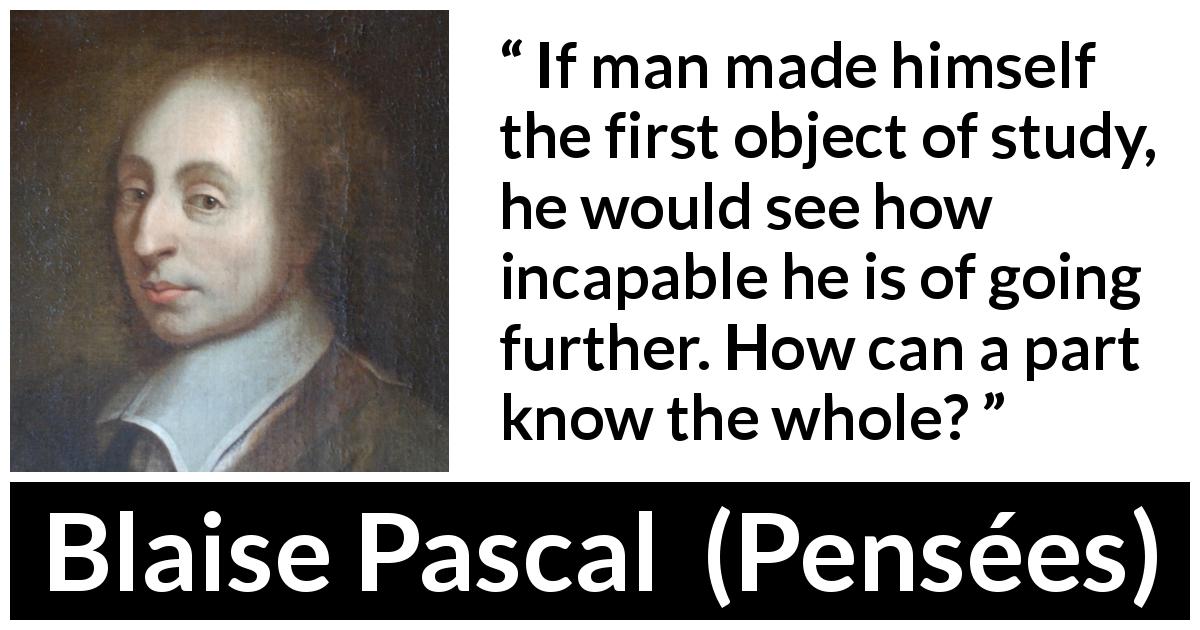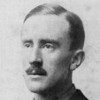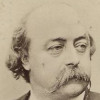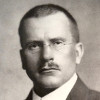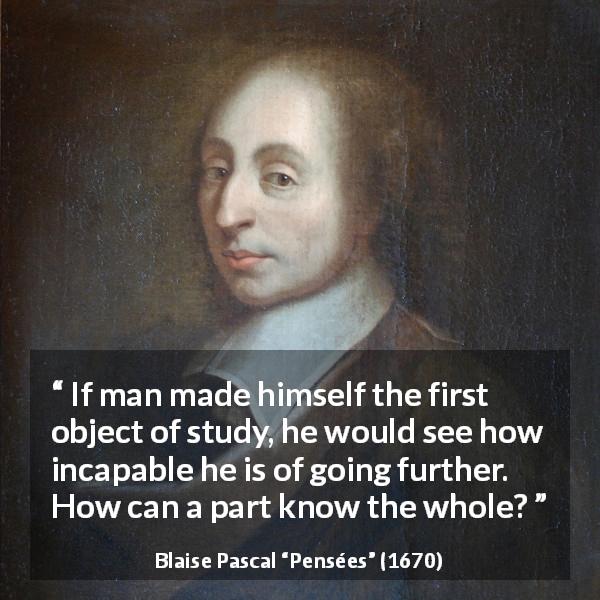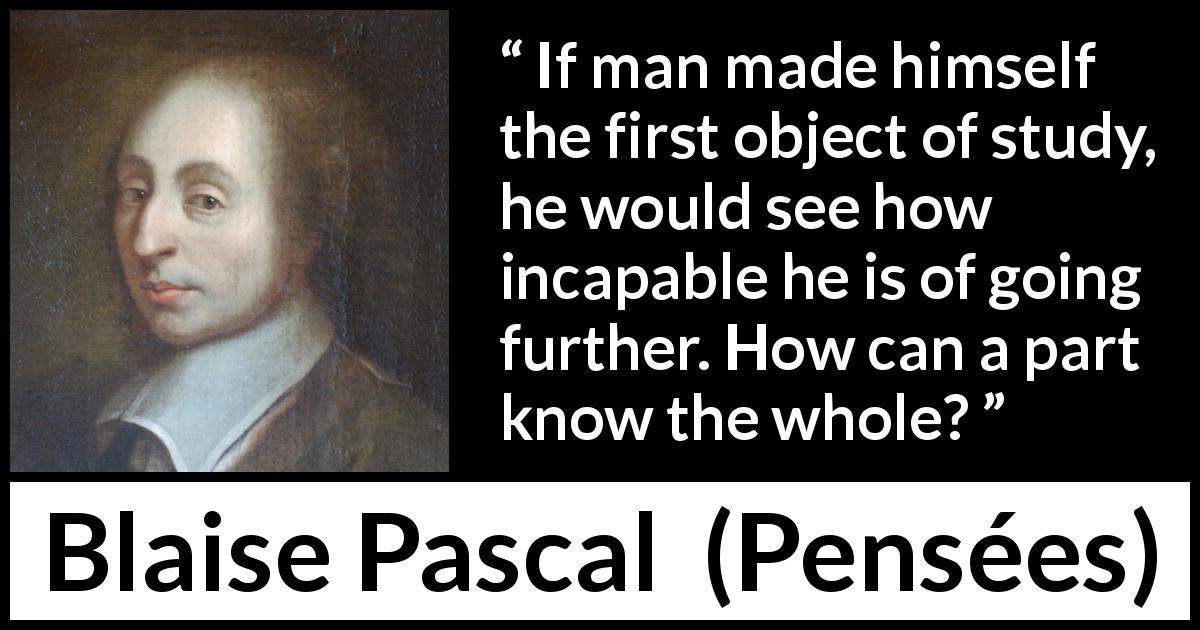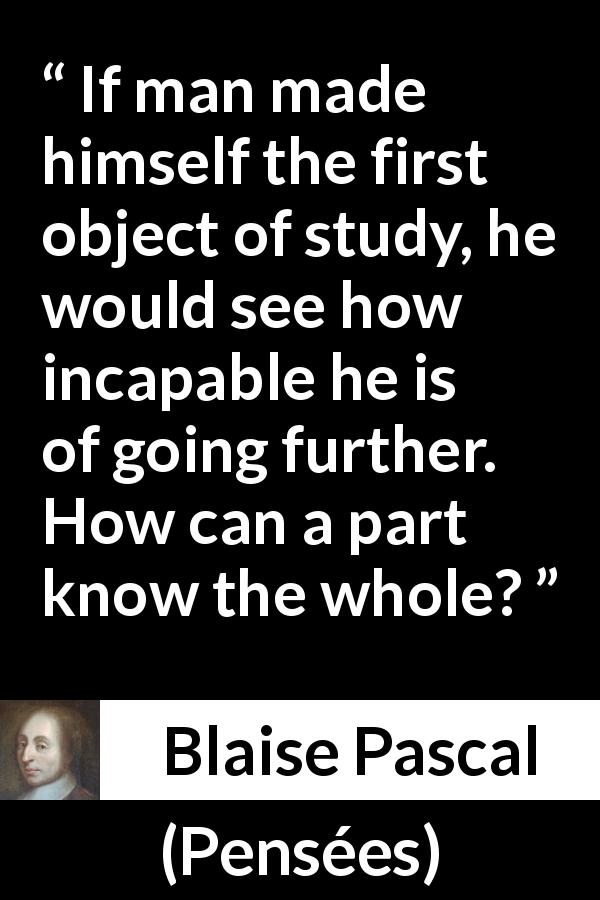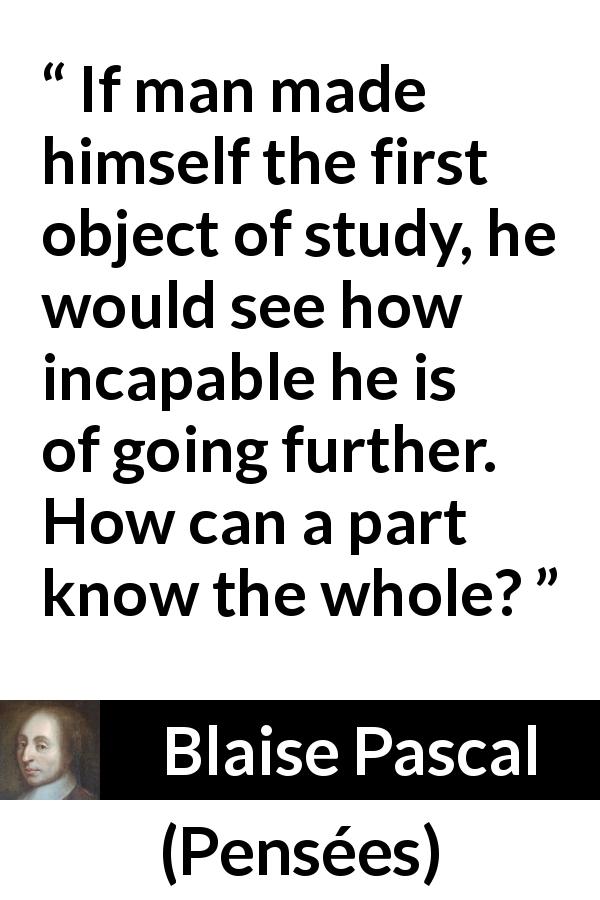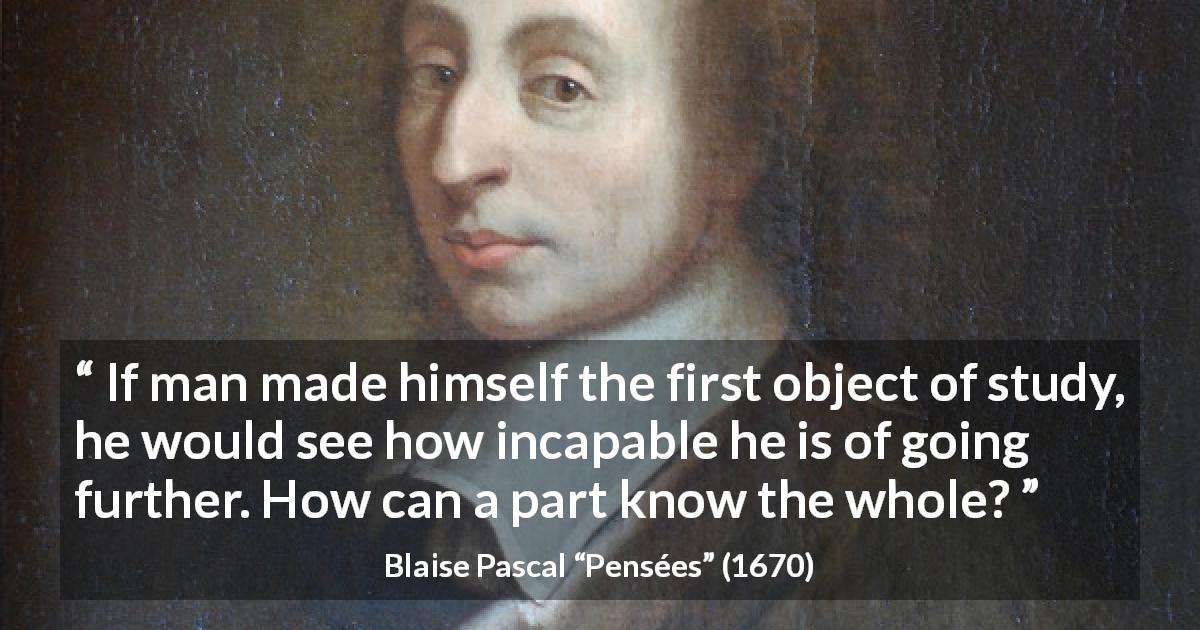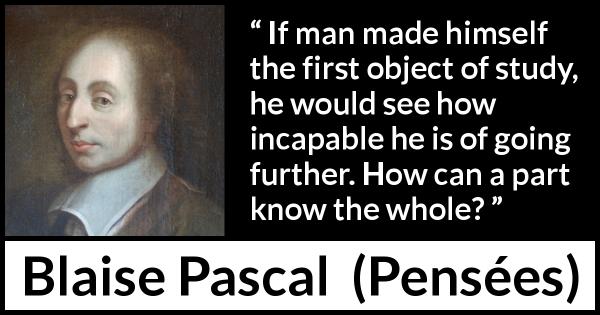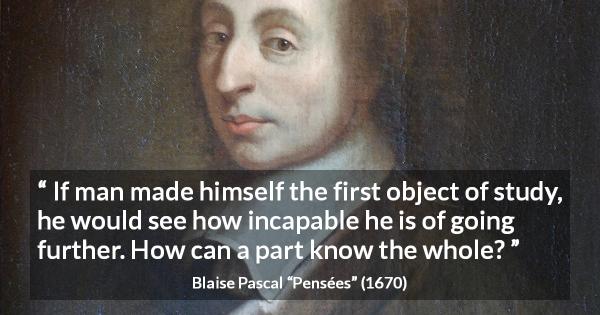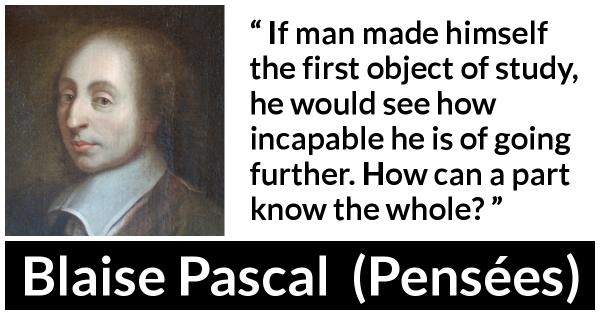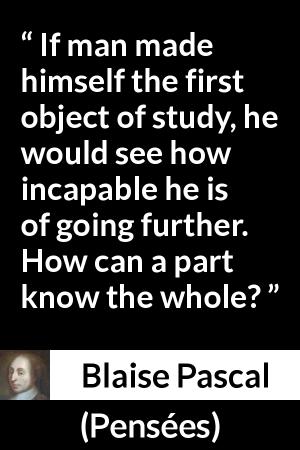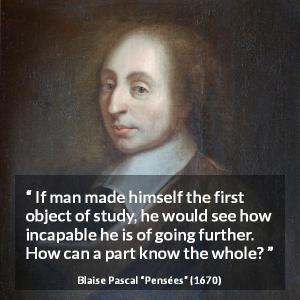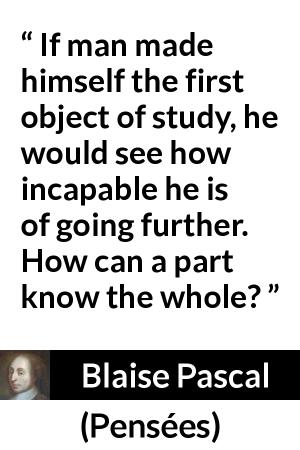“ If man made himself the first object of study, he would see how incapable he is of going further. How can a part know the whole? ”
Blaise Pascal, Pensées (1670). copy citation
| Author | Blaise Pascal |
|---|---|
| Source | Pensées |
| Topic | man study limits |
| Date | 1670 |
| Language | English |
| Reference | |
| Note | Translated by W. F. Trotter |
| Weblink | http://www.gutenberg.org/files/18269/18269-h/18269-h.htm |
Context
“In comparison with these Infinites all finites are equal, and I see no reason for fixing our imagination on one more than on another. The only comparison which we make of ourselves to the finite is painful to us.
If man made himself the first object of study, he would see how incapable he is of going further. How can a part know the whole? But he may perhaps aspire to know at least the parts to which he bears some proportion. But the parts of the world are all so related and linked to one another, that I believe it impossible to know one without the other and without the whole.” source
If man made himself the first object of study, he would see how incapable he is of going further. How can a part know the whole? But he may perhaps aspire to know at least the parts to which he bears some proportion. But the parts of the world are all so related and linked to one another, that I believe it impossible to know one without the other and without the whole.” source
